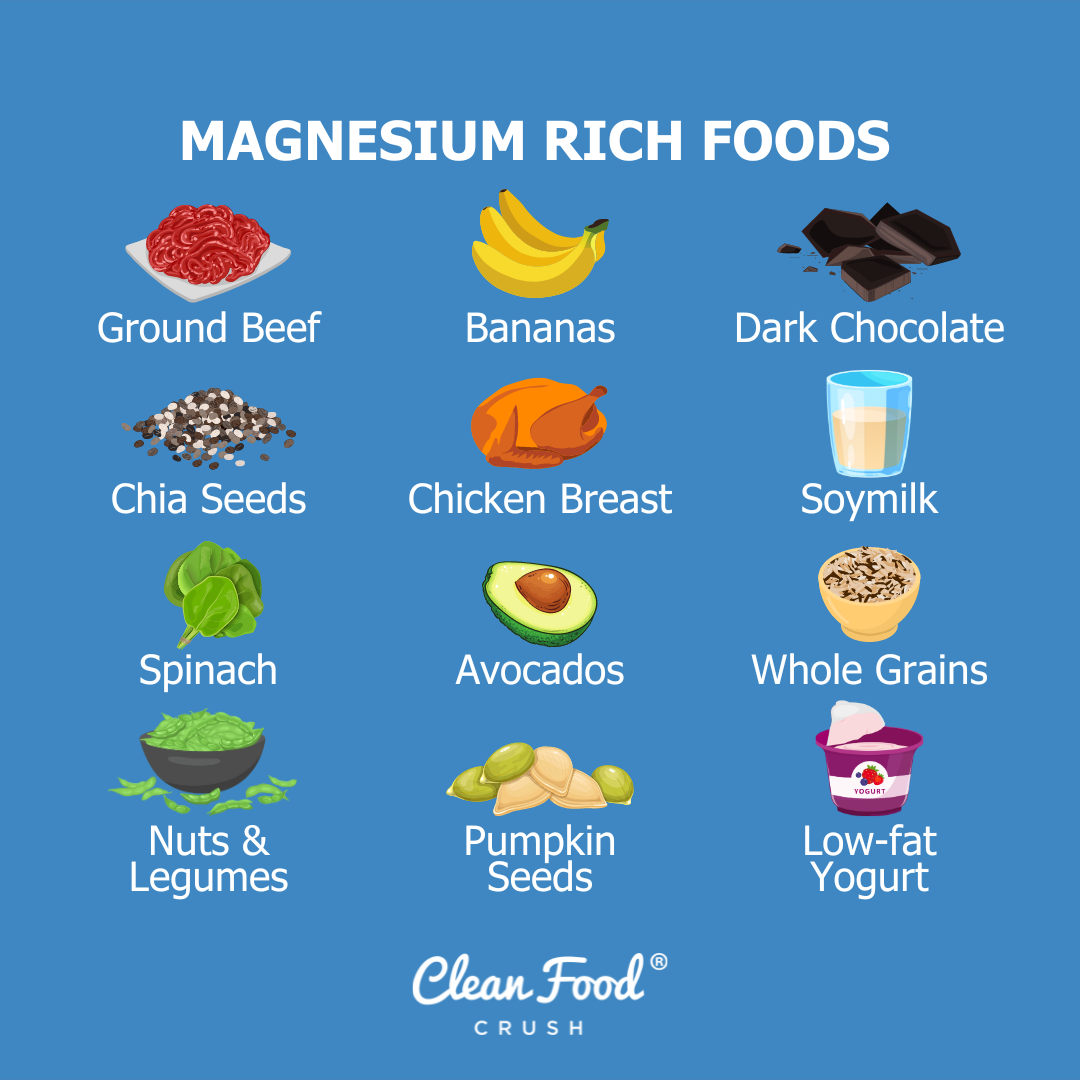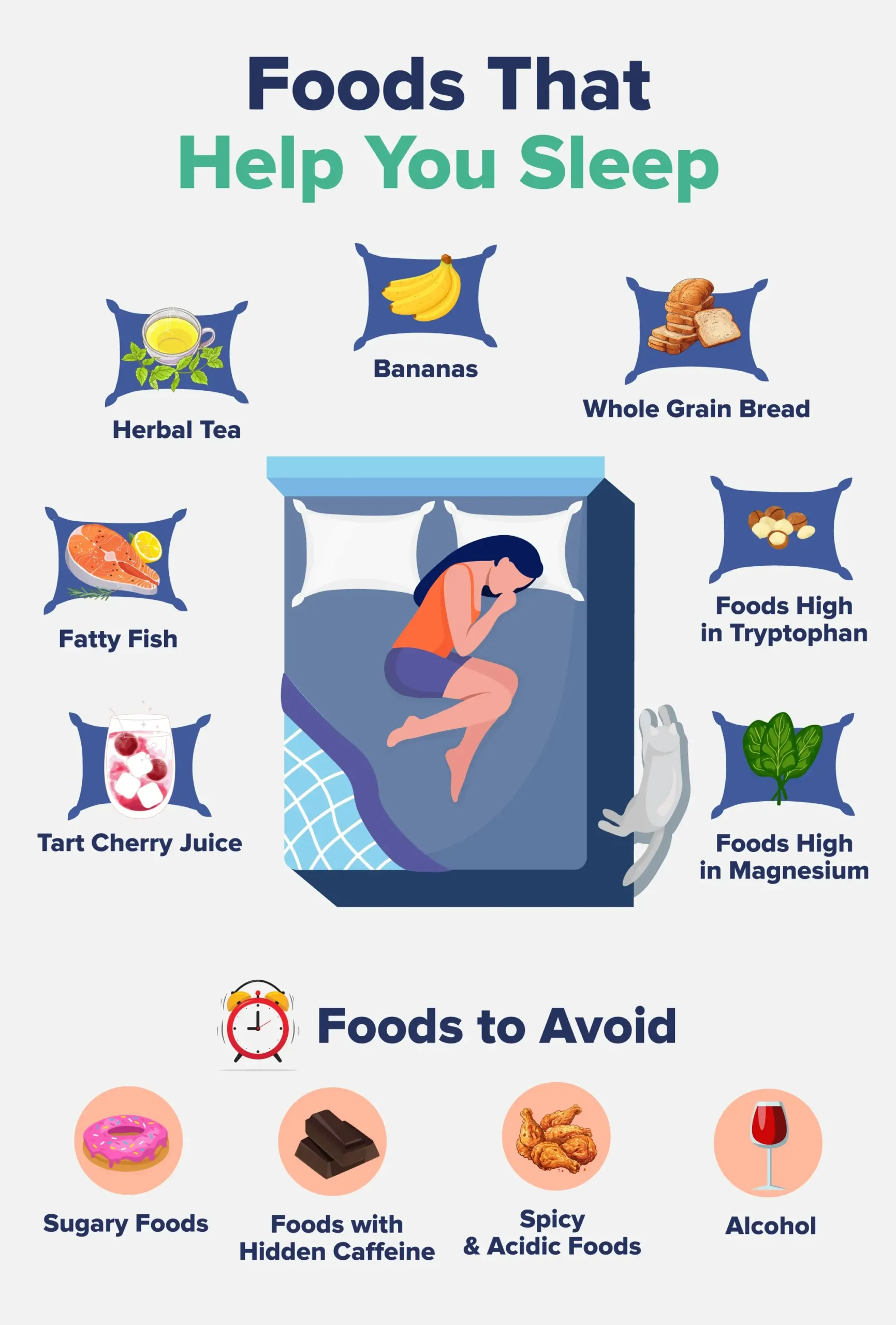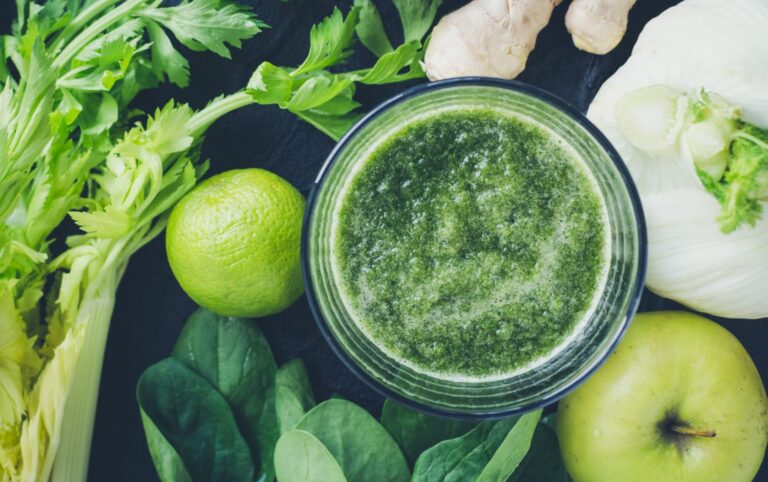Goodbye, Restless Nights: The Culinary Quest for Deeper Sleep
The digital clock glowed an accusatory 3:17 AM. Sarah sighed, the sound a ragged echo in the cavernous silence of her bedroom. Another night, another surrender to the tyranny of wakefulness. Her mind, a relentless hamster on a wheel, replayed the day’s anxieties, cataloged tomorrow’s daunting tasks, and whispered doubts about her ability to function on another paltry few hours of sleep. This wasn’t an isolated incident; it was a nightly ritual, a quiet, desperate battle against an invisible foe.
Sarah’s story, sadly, is not unique. It’s a symphony played out in millions of bedrooms around the globe, a pervasive undercurrent of modern life. We live in an era of unprecedented connectivity, yet we often feel profoundly disconnected from the restorative power of sleep. We chase productivity, entertainment, and endless stimulation, only to find ourselves adrift in the pre-dawn hours, yearning for the elusive embrace of true rest. The remedies we often reach for are quick fixes: sleeping pills, late-night screens, or simply resigned exhaustion. But what if the answer wasn’t a pill or a forced routine, but rather a gentle, delicious recalibration of our internal landscape? What if the key to unlocking those deeply restorative nights lay not in a pharmacy, but in our pantry?
This is the story of a forgotten hero, an unsung orchestrator of calm, a mineral whose quiet power has been overshadowed by flashier nutrients and more aggressive marketing. This is the story of magnesium, and how a mindful return to magnesium-rich foods can transform the nightly battle into a peaceful surrender, ushering in an era of "Goodbye, Restless Nights."
The Silent Crisis: Unpacking Our Modern Sleep Deficit
Before we champion our hero, let’s truly understand the adversary. The modern sleep crisis is more than just feeling tired; it’s a profound threat to our physical, mental, and emotional well-being. Chronic sleep deprivation erodes our immune system, leaving us vulnerable to illness. It sabotages cognitive function, dulling our focus, impairing memory, and stifling creativity. Emotionally, it fuels irritability, anxiety, and depression, painting our world in shades of grey. Physically, it contributes to weight gain, insulin resistance, and cardiovascular issues.
The culprits are manifold: the relentless glow of blue light from our screens, blurring the lines between day and night; the incessant demands of work and social life, squeezing out precious hours of rest; the omnipresent hum of stress, activating our fight-or-flight response long after the actual threat has passed; and critically, our modern diet, often stripped of the very nutrients essential for optimal bodily function, especially when it comes to sleep.
We are a society perpetually on edge, hyper-stimulated and under-nourished in crucial ways. And in this landscape of over-stimulation and under-nourishment, magnesium emerges as a beacon of hope, a natural sedative that gently guides the body and mind back to equilibrium. For those of us who are knowledgeable about our bodies and seeking sustainable, root-cause solutions, understanding magnesium’s intricate role is not just interesting, it’s empowering.
Magnesium: The Maestro of Calm and Conductor of Sleep
Magnesium is not just another mineral; it’s a powerhouse, a co-factor in over 300 enzymatic reactions in the human body. From energy production to DNA synthesis, from muscle contraction to nerve function, magnesium is indispensable. But its role in sleep is particularly profound, almost poetic in its elegance. Think of magnesium as the maestro of an orchestra, ensuring every instrument plays in harmony, especially when it’s time for the lullaby.
Let’s delve into the scientific symphony magnesium conducts to bring about restful sleep:
-
GABA Activation: The Brain’s Natural Sedative: Perhaps magnesium’s most significant contribution to sleep lies in its ability to interact with gamma-aminobutyric acid (GABA) receptors in the brain. GABA is the primary inhibitory neurotransmitter in the central nervous system. Think of it as the brain’s "off switch" or "brake pedal." When GABA is activated, it calms nervous activity, reducing excitability and promoting relaxation. Magnesium binds to these GABA receptors, enhancing their activity. This natural sedative effect helps quiet a racing mind, reduce anxiety, and prepare the brain for sleep. Without sufficient magnesium, GABA’s calming influence is diminished, leaving us feeling wired and restless.
-
Melatonin Regulation: The Sleep Hormone Architect: Melatonin is famously known as the "sleep hormone," signaling to the body that it’s time to wind down. While the pineal gland produces melatonin, magnesium plays a crucial, albeit indirect, role in its synthesis and regulation. It’s involved in the metabolic pathways that convert tryptophan (an amino acid) into serotonin, and then serotonin into melatonin. Adequate magnesium ensures this conversion process is efficient, contributing to a healthy circadian rhythm and the timely release of melatonin.
-
Muscle Relaxation and Nerve Function: Easing Physical Tension: Magnesium is vital for proper muscle and nerve function. It acts as a natural calcium channel blocker, preventing calcium from over-activating neurons and muscles. Calcium is essential for muscle contraction, but magnesium is needed to allow muscles to relax. A deficiency can lead to muscle cramps, spasms, and the unsettling sensation of restless legs syndrome – all notorious sleep disruptors. By promoting muscle relaxation and soothing nerve impulses, magnesium helps the body physically unwind, releasing the day’s accumulated tension.
-
Stress Reduction and Cortisol Regulation: Quieting the Fight-or-Flight Response: In our high-stress world, chronic activation of the stress response is a major sleep thief. Stress triggers the release of cortisol, the "stress hormone," which is designed to keep us alert and ready for action. While useful in acute situations, prolonged high cortisol levels wreak havoc on sleep. Magnesium helps regulate the body’s stress response system (the HPA axis). It can reduce cortisol levels and even help protect the brain from the damaging effects of chronic stress. By dampening the physiological response to stress, magnesium fosters a calmer internal environment conducive to sleep.
-
Blood Sugar Stabilization: Preventing Nighttime Wakes: Fluctuations in blood sugar can disrupt sleep, leading to waking up in the middle of the night. Magnesium plays a critical role in insulin sensitivity and glucose metabolism. By helping to stabilize blood sugar levels, it prevents the dips and spikes that can rouse us from slumber, ensuring a more continuous and stable sleep cycle.
The intricate dance of these mechanisms paints a clear picture: magnesium is not merely a supplement for sleep; it is a fundamental requirement for the neurological and physiological processes that govern rest.
The Magnesium Gap: Why We’re Falling Short
Given magnesium’s undeniable importance, why are so many of us deficient? This is where the story of modern living intersects with ancient biology.
- Soil Depletion: Decades of intensive farming practices have stripped our agricultural soils of vital minerals, including magnesium. Crops grown in nutrient-poor soil naturally contain less magnesium.
- Processed Foods: The more processed a food, the less magnesium it typically contains. Refining grains, for instance, removes the germ and bran, where much of the magnesium resides. Our reliance on convenience foods often means we’re consuming "empty calories" devoid of essential micronutrients.
- Stress: As ironic as it may seem, stress itself depletes magnesium. When the body is under stress, it uses more magnesium to manage the physiological response, creating a vicious cycle where stress leads to deficiency, which in turn exacerbates stress and poor sleep.
- Lifestyle Factors: Excessive alcohol consumption, high caffeine intake, certain medications (like diuretics and proton pump inhibitors), and even fluoride in tap water can interfere with magnesium absorption or increase its excretion.
- Water Quality: Historically, a significant portion of dietary magnesium came from mineral-rich water. Modern water filtration systems, while beneficial for removing contaminants, often strip water of its natural mineral content.
This confluence of factors has created a widespread "magnesium gap" in the population. For the knowledgeable individual seeking autonomy over their health, recognizing this gap is the first step towards reclaiming restful nights. The good news? Nature has provided a delicious and abundant solution.
The Culinary Journey: Magnesium-Rich Foods for Deeper Sleep
The quest for better sleep doesn’t have to be a sterile, clinical endeavor. It can be a vibrant culinary adventure, a mindful exploration of the earth’s bounty. By consciously incorporating magnesium-rich foods into our daily diet, we empower our bodies to find their natural rhythm of rest and rejuvenation. Let’s embark on this delicious journey, discovering the sleep-enhancing powers hidden within everyday ingredients.
1. Leafy Green Powerhouses: Spinach, Kale, Swiss Chard
These emerald gems are not just for Popeye; they are veritable mines of magnesium and other vital nutrients. Dark leafy greens are arguably the most nutrient-dense foods on the planet, and their magnesium content is impressive. A single cup of cooked spinach can provide nearly 40% of your daily recommended intake.
- Magnesium Magic: The chlorophyll, which gives them their vibrant color, is structured around a magnesium ion. Hence, the greener the leaf, generally the higher the magnesium content.
- Beyond Magnesium: They are also rich in vitamins K, A, C, folate, and powerful antioxidants, contributing to overall health and reducing inflammation, which can indirectly support sleep.
- Culinary Integration: Don’t just relegate them to salads. Sauté spinach with garlic as a side dish, blend kale into smoothies (you won’t even taste it!), add Swiss chard to soups, stews, or omelets. A simple pesto made with spinach or kale can elevate any pasta or toast. Imagine a soothing evening meal featuring a hearty lentil and spinach soup, gently preparing your body for slumber.
2. Nuts and Seeds: The Mighty Miniatures
Small but mighty, nuts and seeds are convenient, versatile, and packed with magnesium, healthy fats, protein, and fiber. They make excellent snacks or additions to meals.
- Almonds: A quarter-cup serving of almonds delivers around 100 mg of magnesium, along with protein, vitamin E, and healthy fats.
- Cashews: Similar to almonds, cashews offer a good dose of magnesium and a creamy texture.
- Pumpkin Seeds (Pepitas): These are truly magnesium superstars, with about 150 mg in just a quarter-cup. They also provide zinc, which is crucial for immune function and sleep, and tryptophan, the precursor to serotonin and melatonin.
- Chia Seeds & Flax Seeds: While lower in magnesium than pumpkin seeds, they are rich in omega-3 fatty acids, fiber, and other minerals that support overall health and digestive regularity, indirectly aiding sleep.
- Culinary Integration: Sprinkle pumpkin seeds over salads, yogurt, or oatmeal. Add a handful of almonds or cashews to your trail mix, blend them into nut butter, or use them as a crunchy topping for stir-fries. Chia seeds can be made into a delicious pudding or added to smoothies for an extra nutrient boost. A small handful of almonds or pumpkin seeds an hour before bed can be a gentle, magnesium-rich nightcap.
3. Legumes: The Earth’s Hearty Gifts
Beans, lentils, and chickpeas are the unsung heroes of plant-based nutrition. They are affordable, filling, and incredibly versatile, providing a wealth of magnesium, fiber, and plant-based protein.
- Black Beans: A single cup of cooked black beans provides over 120 mg of magnesium, along with soluble and insoluble fiber that supports gut health, which is increasingly linked to sleep quality.
- Lentils: Lentils are another excellent source, offering about 70 mg per cooked cup, plus iron and folate.
- Chickpeas (Garbanzo Beans): These versatile legumes provide around 70 mg of magnesium per cooked cup, alongside protein and fiber.
- Culinary Integration: Add black beans to tacos, burritos, or vibrant salads. Create a comforting lentil soup or a spicy lentil dal. Hummus, made from chickpeas, is a delicious and magnesium-rich dip for vegetables or whole-grain pita. A substantial, plant-forward dinner centered around legumes can be profoundly satisfying and sleep-supportive.
4. Whole Grains: Sustained Energy, Deep Rest
While refined grains are stripped of their magnesium, whole grains retain all parts of the kernel – the bran, germ, and endosperm – making them rich in magnesium, fiber, and B vitamins.
- Oats: A bowl of oatmeal provides a respectable amount of magnesium, along with complex carbohydrates that promote the release of serotonin.
- Quinoa: This ancient grain is a complete protein and an excellent source of magnesium, offering about 118 mg per cooked cup.
- Brown Rice: A good alternative to white rice, brown rice provides more fiber and magnesium.
- Culinary Integration: Start your day with magnesium-rich oatmeal, perhaps topped with berries and pumpkin seeds. Use quinoa as a base for salads, a side dish, or even in breakfast bowls. Opt for whole-grain bread over white bread. A warm bowl of quinoa or brown rice with roasted vegetables in the evening can provide sustained energy release, preventing blood sugar dips that might wake you.
5. Dark Chocolate: The Indulgent Healer (with a caveat!)
Yes, you read that right! For those who appreciate a touch of indulgence, dark chocolate (70% cocoa or higher) is a surprisingly good source of magnesium.
- Magnesium Magic: A 1-ounce (28-gram) serving of dark chocolate with 70-85% cocoa can provide around 64 mg of magnesium.
- Beyond Magnesium: It’s also packed with antioxidants (flavonoids), iron, and prebiotics that feed beneficial gut bacteria.
- The Caveat: Choose high-quality dark chocolate with minimal sugar. Also, be mindful of its caffeine content, especially if consumed close to bedtime. A small square earlier in the evening might be fine, but a whole bar right before bed could be counterproductive for some.
- Culinary Integration: Enjoy a small square as a mindful treat after dinner. Melt it and drizzle over fruit, or shave it over oatmeal. The story here is about mindful enjoyment – a small, potent dose of pleasure and nutrients, not an excessive indulgence.
6. Avocado: The Creamy Nutrient Bomb
Avocado, with its rich, creamy texture, is a beloved superfood for good reason. It’s packed with healthy fats, fiber, potassium, and yes, magnesium.
- Magnesium Magic: One medium avocado contains approximately 58 mg of magnesium.
- Beyond Magnesium: Its healthy monounsaturated fats are excellent for heart health, and its fiber content aids digestion. Potassium is also crucial for fluid balance and muscle function.
- Culinary Integration: Mash it into guacamole, slice it onto toast, add it to salads, or blend it into smoothies for a creamy texture. A delicious avocado toast for breakfast or a side of sliced avocado with your dinner can easily boost your magnesium intake.
7. Bananas: More Than Just Potassium
While famous for potassium, bananas also offer a decent amount of magnesium and other sleep-supporting compounds.
- Magnesium Magic: One medium banana contains about 32 mg of magnesium.
- Beyond Magnesium: They are also a good source of tryptophan (the precursor to serotonin and melatonin) and vitamin B6, which helps convert tryptophan into serotonin.
- Culinary Integration: Enjoy a banana as a snack, add it to your morning smoothie, or slice it over oatmeal. A banana before bed is a classic, gentle way to provide your body with sleep-friendly nutrients.
8. Fatty Fish: The Omega-3 and Magnesium Combo
Certain fatty fish like salmon, mackerel, and halibut are nutritional powerhouses, providing not only magnesium but also beneficial omega-3 fatty acids and vitamin D, all of which play roles in sleep and overall well-being.
- Magnesium Magic: A 3-ounce serving of cooked salmon can provide around 25-30 mg of magnesium. Halibut is particularly rich, offering about 100 mg per 3.5 ounces.
- Beyond Magnesium: Omega-3s are renowned for their anti-inflammatory properties and their role in brain health, which can positively impact mood and sleep regulation. Vitamin D is also linked to sleep quality.
- Culinary Integration: Grill, bake, or pan-sear salmon or mackerel for dinner. Incorporate them into salads or fish tacos. A delicious fish meal a few times a week can significantly contribute to your magnesium and omega-3 intake.
9. Tofu and Edamame: Plant-Based Protein with a Magnesium Punch
For those following a plant-based diet or looking to reduce meat consumption, tofu and edamame are excellent choices, offering protein, fiber, and magnesium.
- Magnesium Magic: A half-cup serving of firm tofu contains about 37 mg of magnesium, while a cup of shelled edamame provides around 50 mg.
- Beyond Magnesium: They are complete plant proteins, providing all essential amino acids, and also contain iron and calcium.
- Culinary Integration: Marinate and grill tofu, stir-fry it with vegetables, or crumble it into scrambles. Enjoy steamed edamame as a snack or add it to salads and grain bowls.
Beyond the Plate: A Holistic Symphony for Sleep
While magnesium-rich foods are undeniably powerful allies in the quest for deeper sleep, it’s crucial to remember they are part of a larger, holistic symphony. The story of reclaiming restful nights isn’t just about what you eat; it’s about how you live.
- Consistency is Key: Integrating these foods into your diet consistently over time will yield the best results. Magnesium stores need to be replenished regularly.
- Hydration: Drink plenty of water throughout the day. Dehydration can exacerbate many issues, including poor sleep.
- Sleep Hygiene: Maintain a consistent sleep schedule, even on weekends. Create a relaxing bedtime routine – a warm bath, reading a book, gentle stretching. Ensure your bedroom is dark, cool, and quiet.
- Mindful Movement: Regular physical activity can significantly improve sleep quality, but avoid intense workouts too close to bedtime.
- Stress Management: Practice mindfulness, meditation, deep breathing exercises, or yoga to help manage stress and quiet a busy mind. Remember, stress depletes magnesium, so managing it is a dual benefit.
- Limit Stimulants: Reduce caffeine and alcohol intake, especially in the afternoon and evening. While alcohol might initially make you feel sleepy, it disrupts sleep architecture later in the night.
- Listen to Your Body: Pay attention to how different foods and practices affect your sleep. What works for one person might need slight adjustments for another.
The beauty of this approach lies in its empowerment. It’s not about relying on an external fix, but about understanding and nurturing your body’s innate capacity for healing and restoration. By consciously choosing foods that support your sleep architecture, you are not just addressing a symptom; you are building resilience, nourishing your nervous system, and honoring your body’s fundamental need for rest.
The Resolution: Embracing the Promise of Rest
Sarah, our restless protagonist from the beginning, eventually stumbled upon the profound power of magnesium. It wasn’t an overnight miracle, but a gradual unfolding. She started small, adding a handful of pumpkin seeds to her morning oatmeal, swapping her white rice for quinoa, and making a conscious effort to include a generous serving of leafy greens with dinner. She noticed subtle shifts first: a slightly calmer demeanor during the day, less muscle tension in her shoulders. Then, one night, she woke up not to the digital clock’s accusatory glow, but to the gentle filter of dawn through her curtains, realizing she had slept soundly through the night. The hamster wheel in her mind had finally slowed, then stopped.
The journey to deeper sleep, guided by the humble yet mighty magnesium, is a story of rediscovery. It’s a testament to the wisdom of nature, often found in the simplest, most fundamental elements. It’s a call to action for the knowledgeable and discerning, an invitation to reclaim not just sleep, but vitality, clarity, and peace.
So, let us bid a heartfelt "goodbye" to those restless nights, to the tossing and turning, the anxious thoughts, and the weary mornings. Let us embrace a new narrative, one woven with the vibrant colors of spinach, the earthy crunch of pumpkin seeds, and the comforting warmth of whole grains. Let us unlock the silent power of magnesium, one delicious, nourishing bite at a time, and step into the dawn refreshed, renewed, and ready to greet the day with the profound gift of truly rested mind and body. The story of your best sleep begins now, in your kitchen, with the choices you make for your plate.







